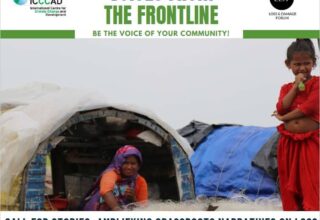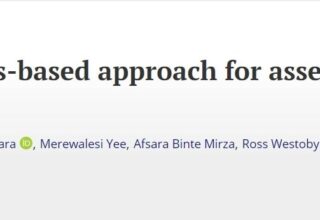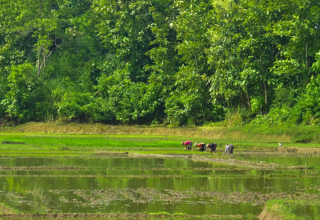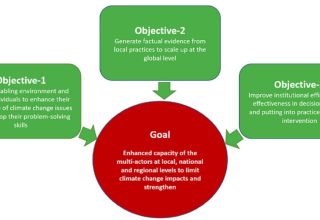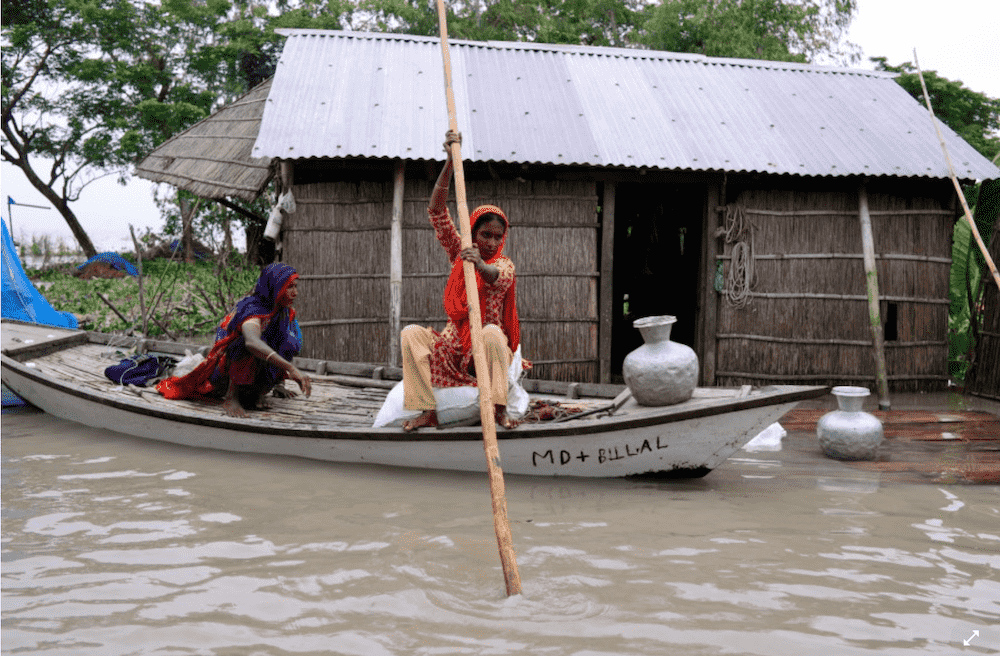
Every year International Women’s Day (March 8) honours women’s accomplishments, while also raising awareness on the issues they face. The day calls for the celebration of inclusion, and gender diversity, recognizing women and girls in all walks of life who are leading the charge to break free of bias, stereotypes, and discrimination to forge women’s equality. In the year 2021, the day celebrated the notion #ChoosetoChallenge, reminding us of the need for women’s collective efforts to build a better, stronger future.
Due to gender inequities, women must endure an outsized weight of the global warming catastrophe, from drowning islands to cyclonic coastlines, to drought-stricken savannas. Women around the world play traditional responsibilities as major caregivers in families and communities, and as key producers of food and fuel, at most times they are susceptible to climatic hazards such as flooding, cyclones, increasing salinity, and droughts. Additionally, women have less access to resources like land, loans, agricultural inputs, decision-making processes, technology, training, and extension services compared to their men counterparts.
Yet women and girls, who make up 51% of the world’s population, are responding more effectively in times of crisis. They are actively fighting to create a more just and sustainable world in every society. Hence, women’s leadership and engagement are critical to keeping global warming below 1.5°C. In celebration of their tireless contribution towards our future for the year 2022, the theme of the international women’s day has been “Gender equality today for a sustainable tomorrow.” The theme this year resonated with the need for change in the narrative of calling women vulnerable.
Why we need to change the narrative to active agents of change
Despite the enormous, social, structural, and economic inequalities that work against women we need to recognize the benefits they bring on board to address climate change.
As a woman myself, working as a climate researcher in the development sector of Bangladesh, I strongly feel that women are powerful change makers because of their lived experience, responsibility, maternal instincts, and strength, which serve as the main resource for their adaptation capacities.
To sum up, here are some of the prevailing reasons on why we need to promote women leaders and focus resources on women who are leading the fight against climate change.
Drivers of action: Women demonstrate a unique knowledge and skill set when given the opportunity to actively participate in disaster planning and emergency response. This allows communities to recover more rapidly and effectively. The Women-Led Emergency Response (WLER) — initiated by ActionAid Bangladesh in 2013(after cyclone Mahasen) to advance the leadership skills of women to respond to the disaster has seen tremendous success. Upon receiving training from AAB they have successfully carried out disaster response during Cyclone Amphan (2020), Cyclone Yaas(2021), the 2015 Chittagong landslide, and COVID-19 emergency response(2020) to name a few. Over the years the number of women leaders in WLER increased to 237 women.
Indigenous knowledge: Over the years women have developed their traditional knowledge and individual abilities in; water collection and storage; food preservation and rationing; as well as natural resource management. Additionally, it is important to understand their reliance on natural resources for livelihood drives their desire to conserve them. These capacities enhance their resiliency, furthermore, their traditional knowledge of natural solutions to the energy, waste management, and agriculture challenges, making their leadership critical in advancing the implementation of nature-based solutions.
Powerful organizers and managers: A study by Aaron McCright had identified more women than men in the USA are ‘alarmed’ and ‘concerned’ about climate change and are willing to make sacrifices to reduce carbon emissions (Maron, 2010), furthermore, it is important to realize that more women than man have taken initiatives in leadership roles to design and improve climate change policy. Yet allocation of resources is not representative of such initiatives. In the U.S only 2% of all charitable funds are directed to environmental causes followed by only 1.6% of the philanthropic donations being directed to women’s organizations (Leonhardt, 2019). Despite such shortcomings, female-led networks and initiatives are taking action.
According to a study across 130 countries, nations with significant female representation in administrations are more likely to adopt international environmental treaties (Norgaard, and York, 2005). In 2019 Time Magazine had identified 15 women leaders who are using their voices today to take leadership and call for action on climate change, from the scope and position of policy, science, activism, and locally-led initiatives. One of these women leaders is Christiana Figueres, executive secretary of the United Nations Framework Convention on Climate Change (UNFCCC). In 2015 she successfully steered world leaders to reach the Paris Agreement. Additionally, with a group of notable female lawyers, diplomats, financiers, and activists, Figueres has a successful run in shedding important light on the gender dimension of climate change.
The success of women-driven initiatives from the grassroots, to the global level, is a reminder of how women are providing answers to the problem of climate change regardless of being disproportionately affected by global warming. It is now more crucial than ever that governments, investors, and philanthropists must recognize women as a powerful force for change, driving our communities and the world to a more sustainable future. We must significantly expand efforts to empower women by adequately funding them and make efforts to celebrate the true leaders of the climate-change movement beyond just International Women’s Day.
Originally this article was published on May 18, 2022 at Dhaka Tribune.
Rukhsar Sultana is working as Programme Officer, for Resilience and Climate Justice Programme of ActionAid Bangladesh. She can be reached at rukhsar.sultana@actionaid.org.

